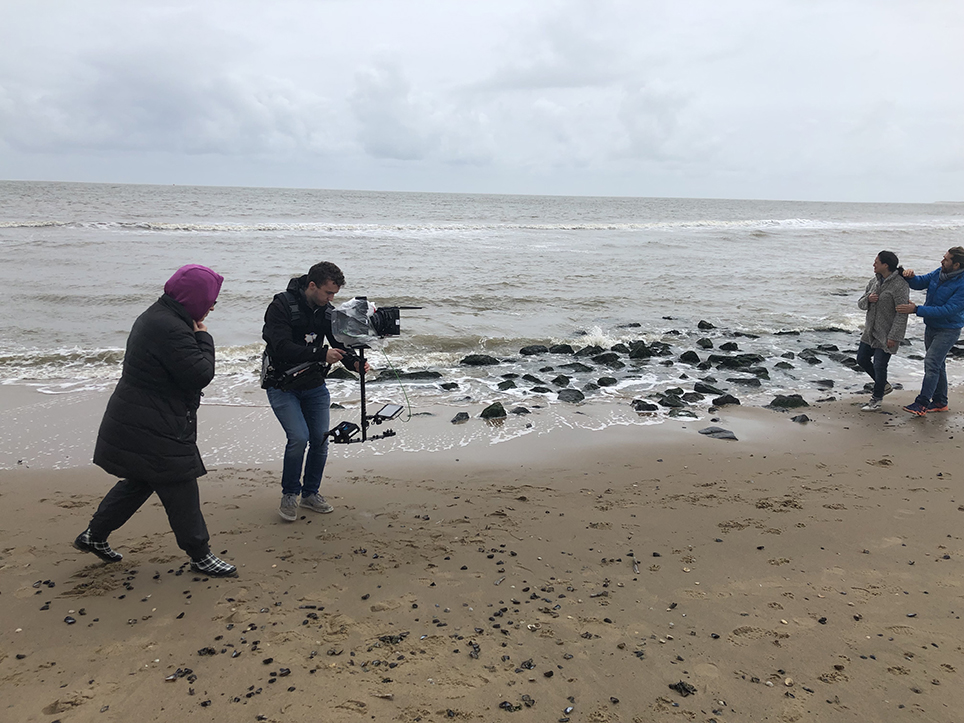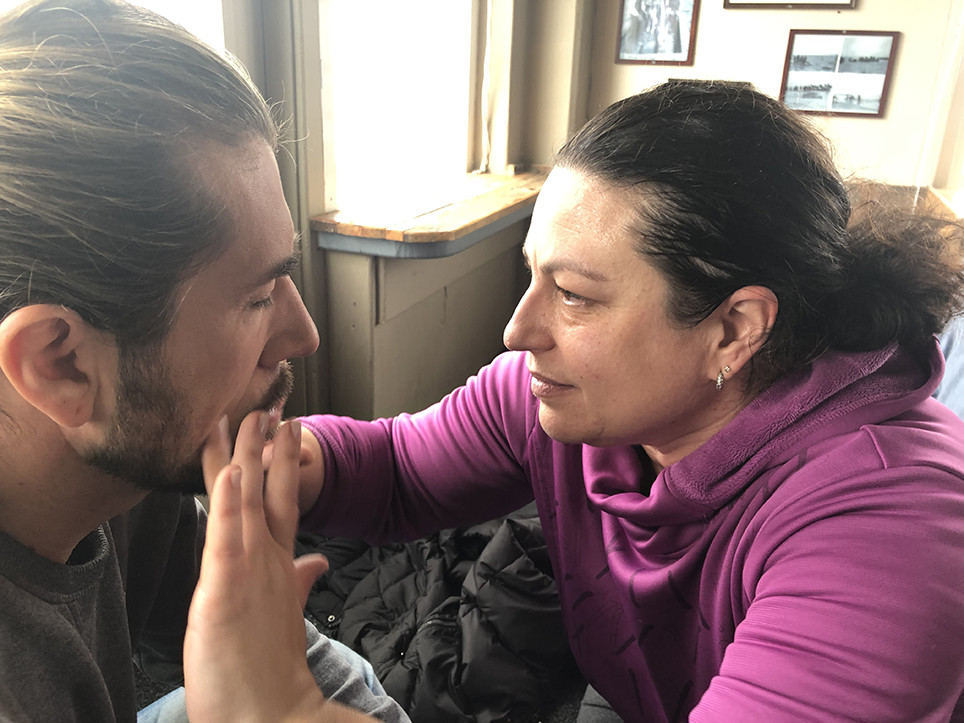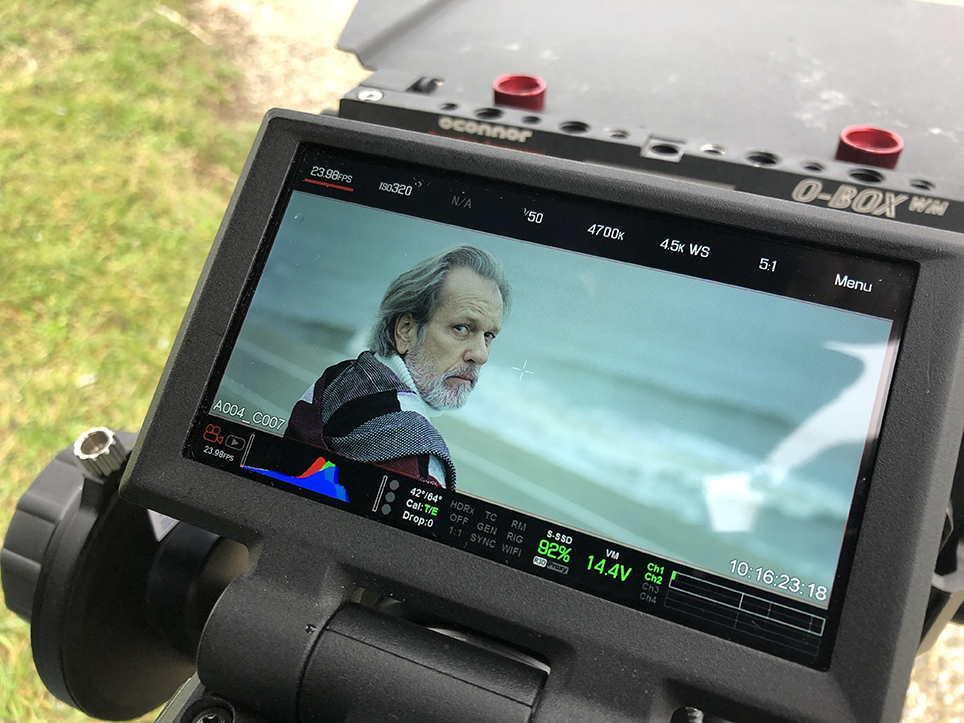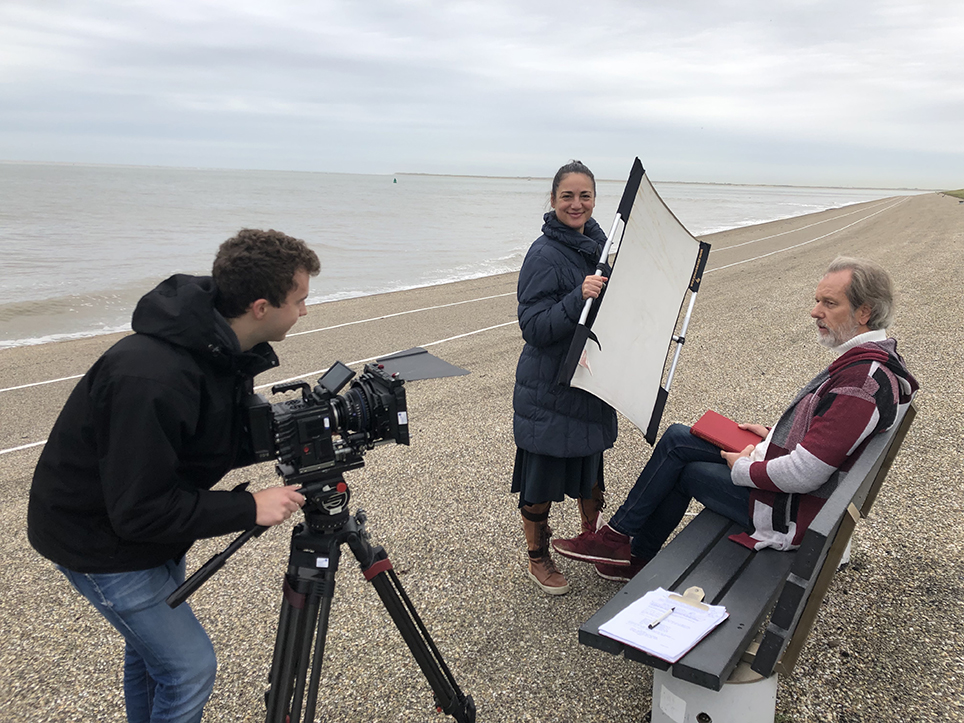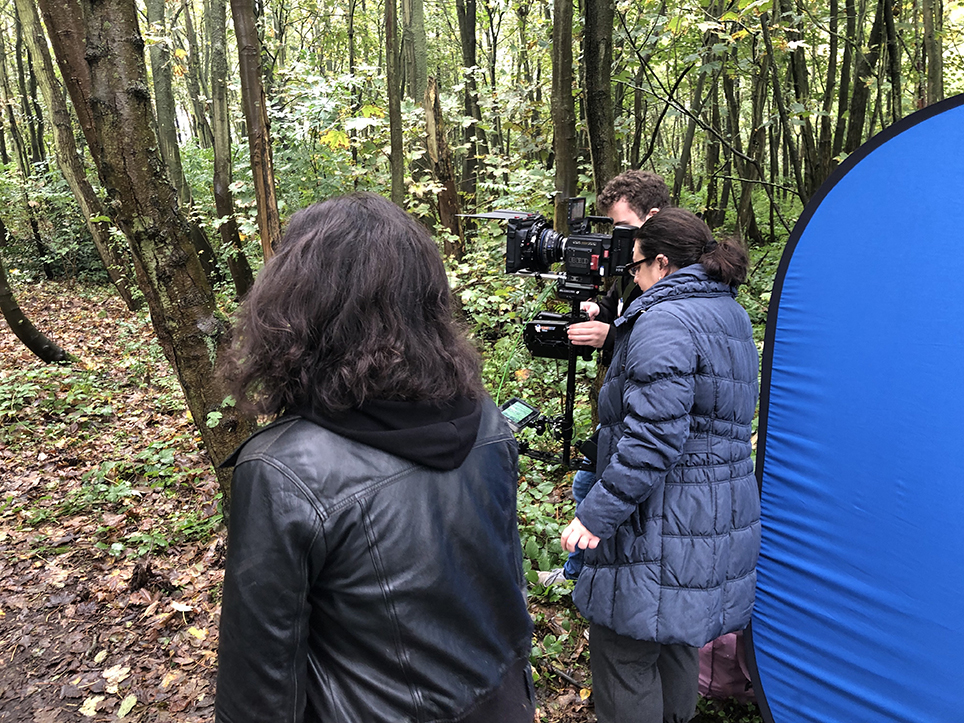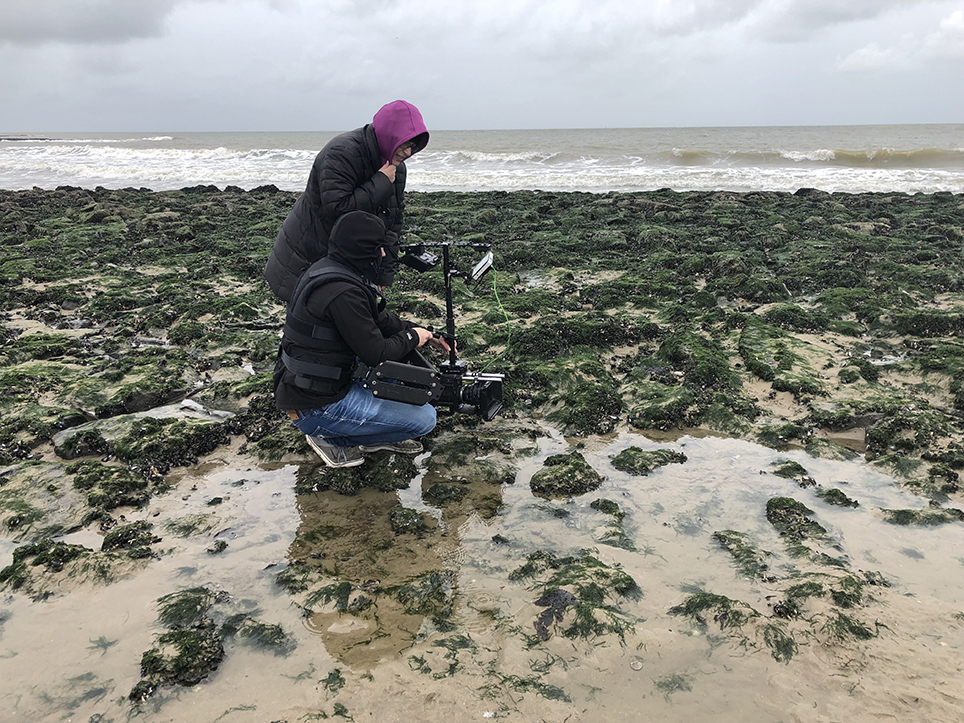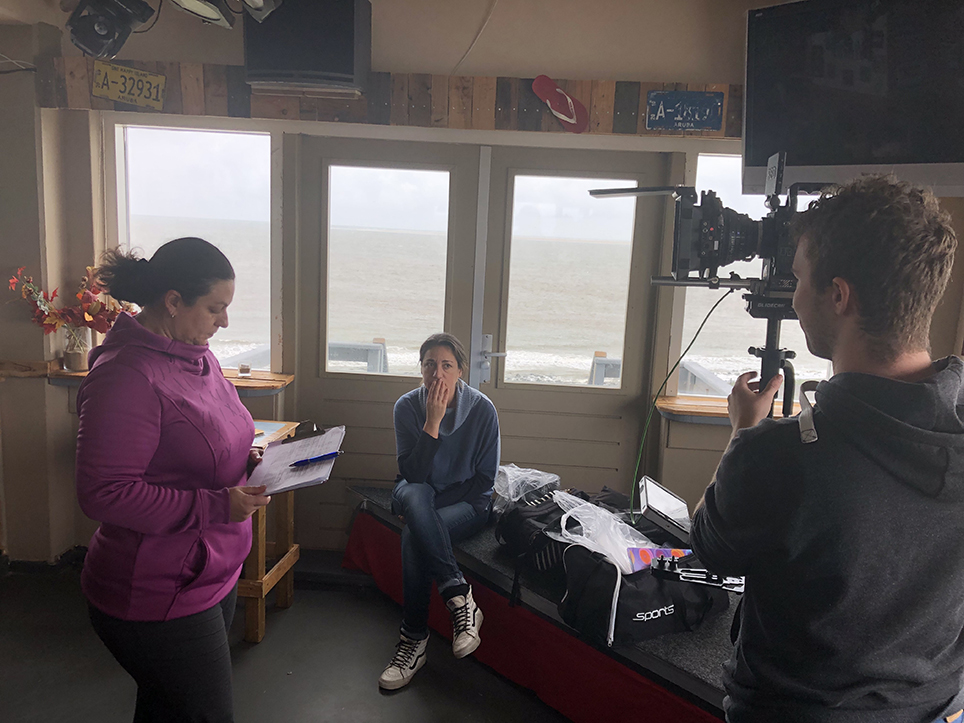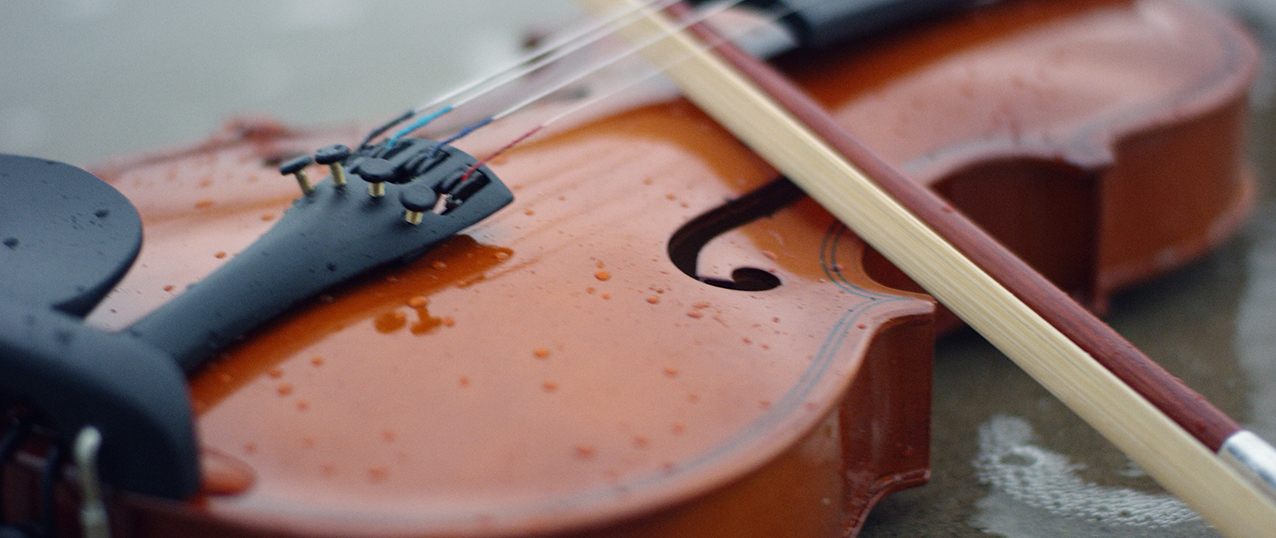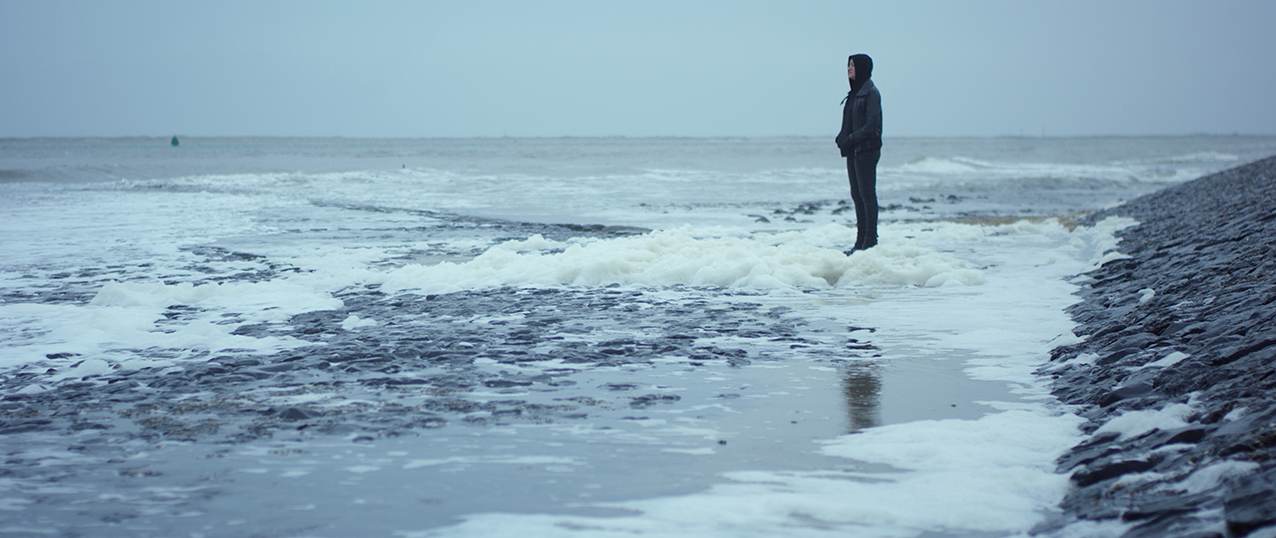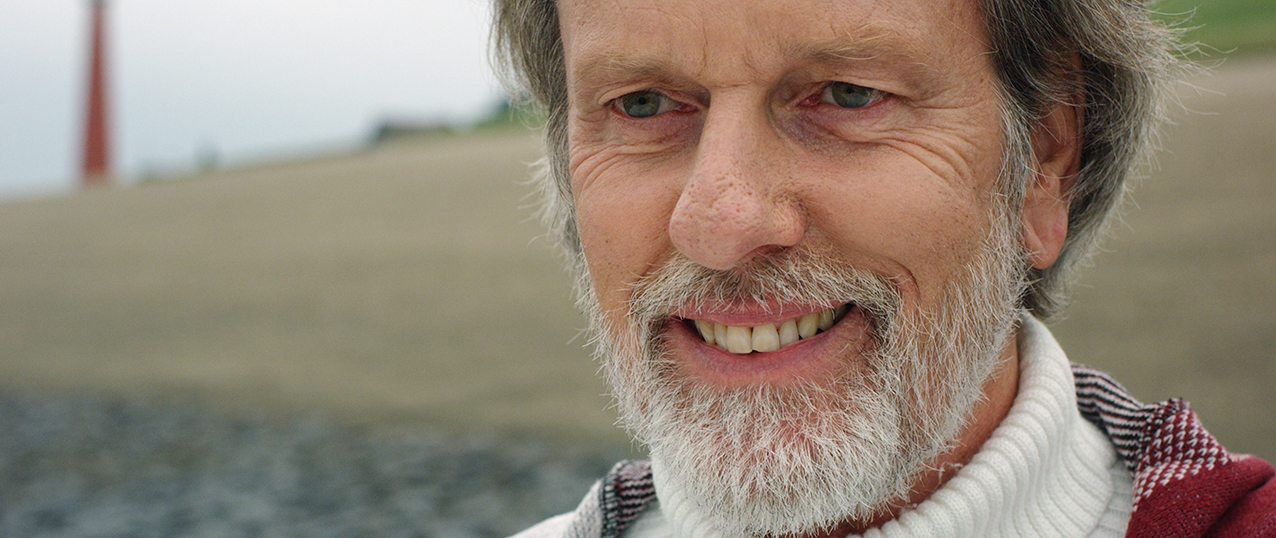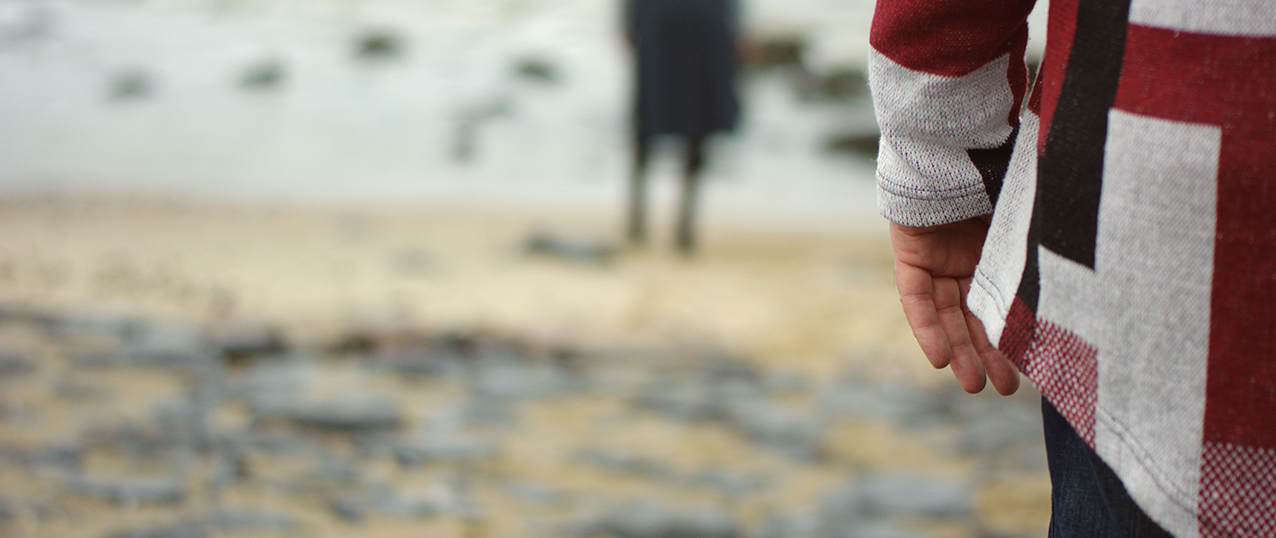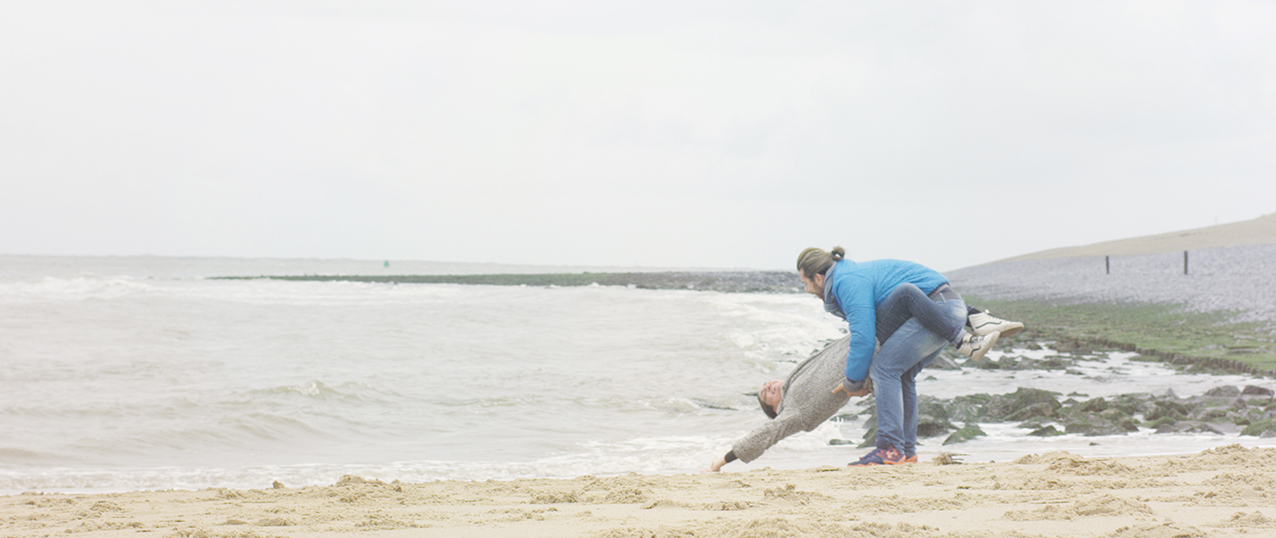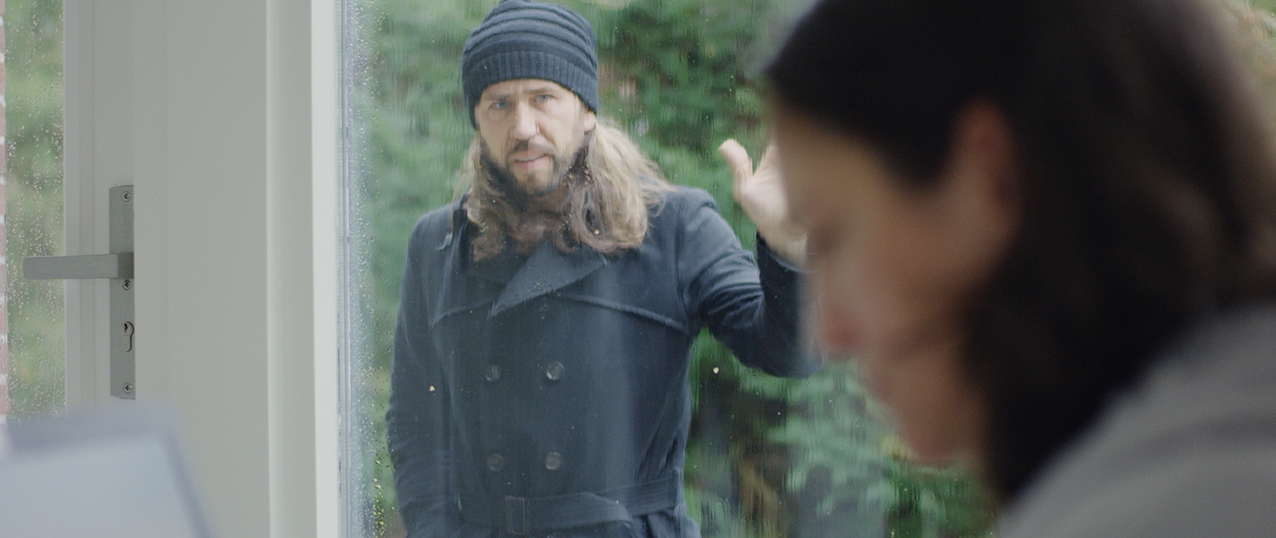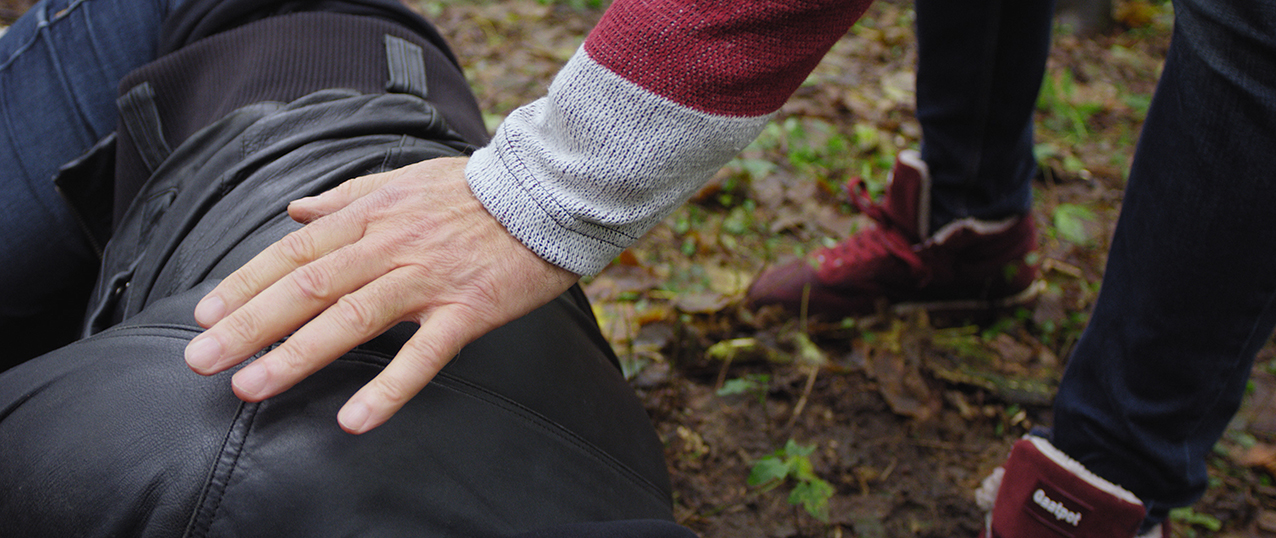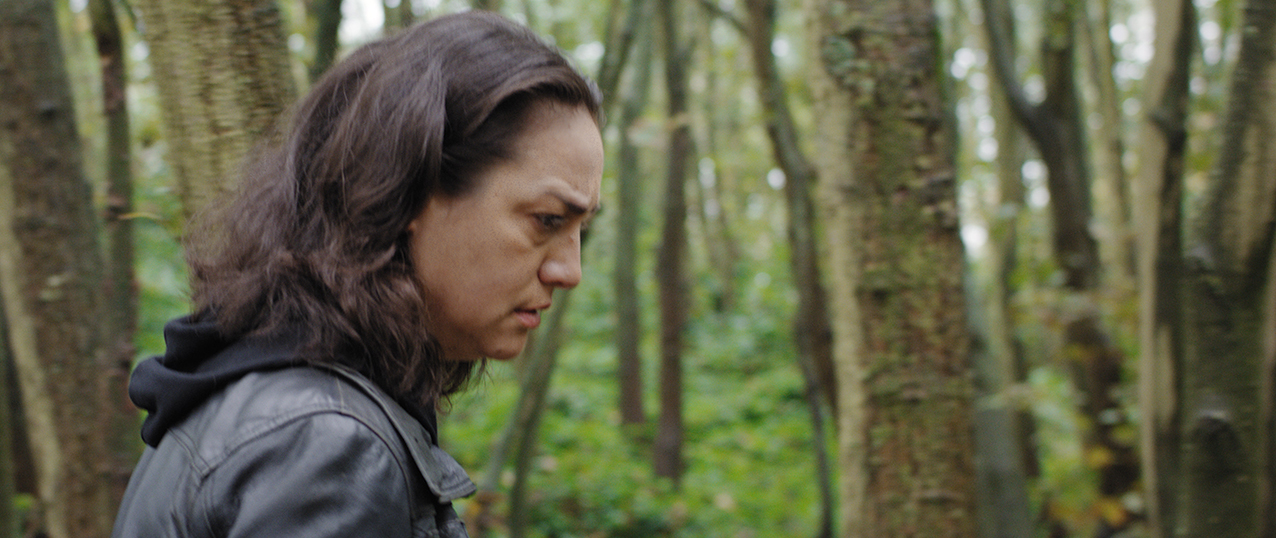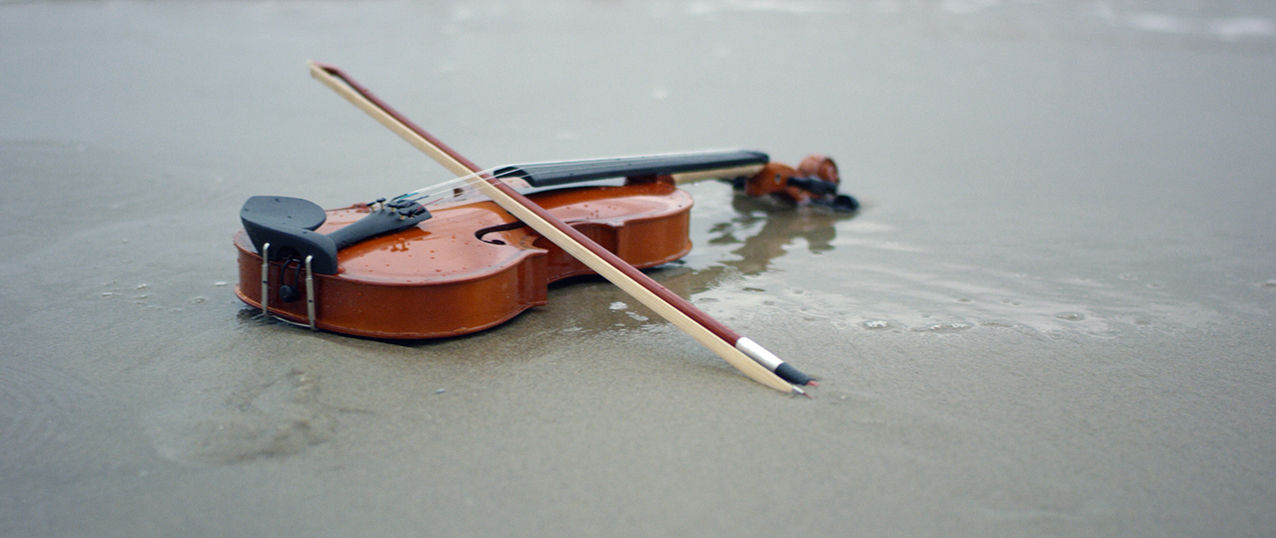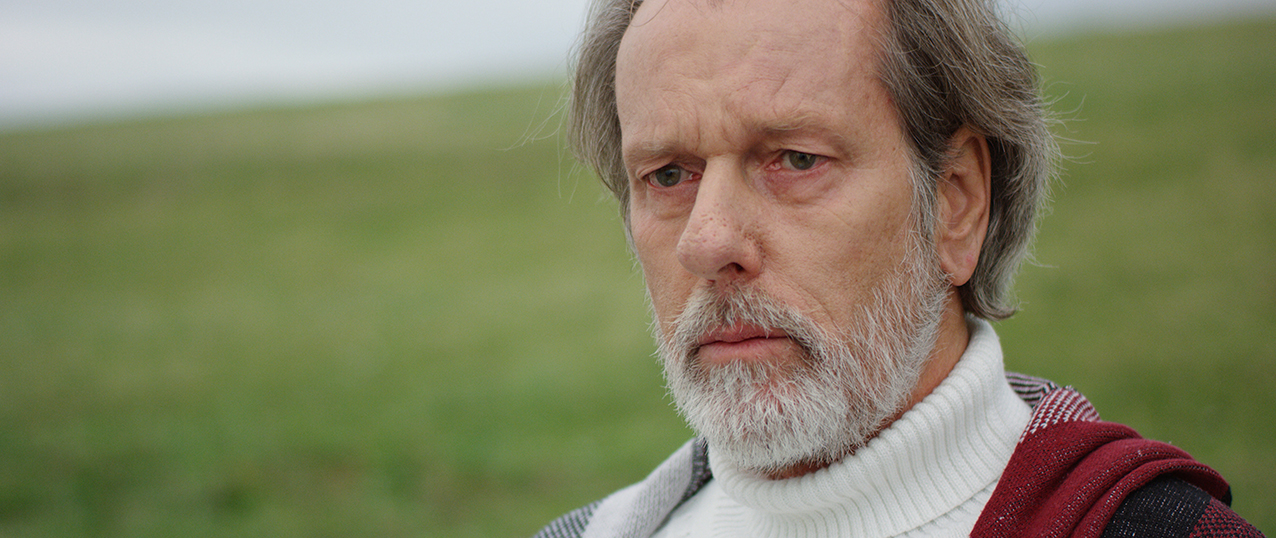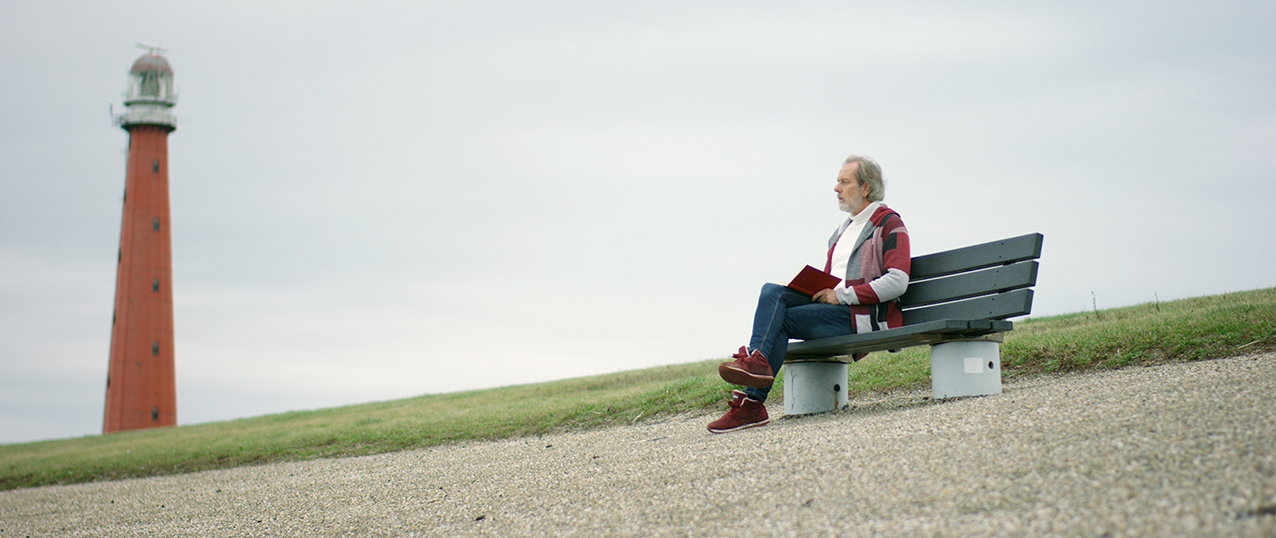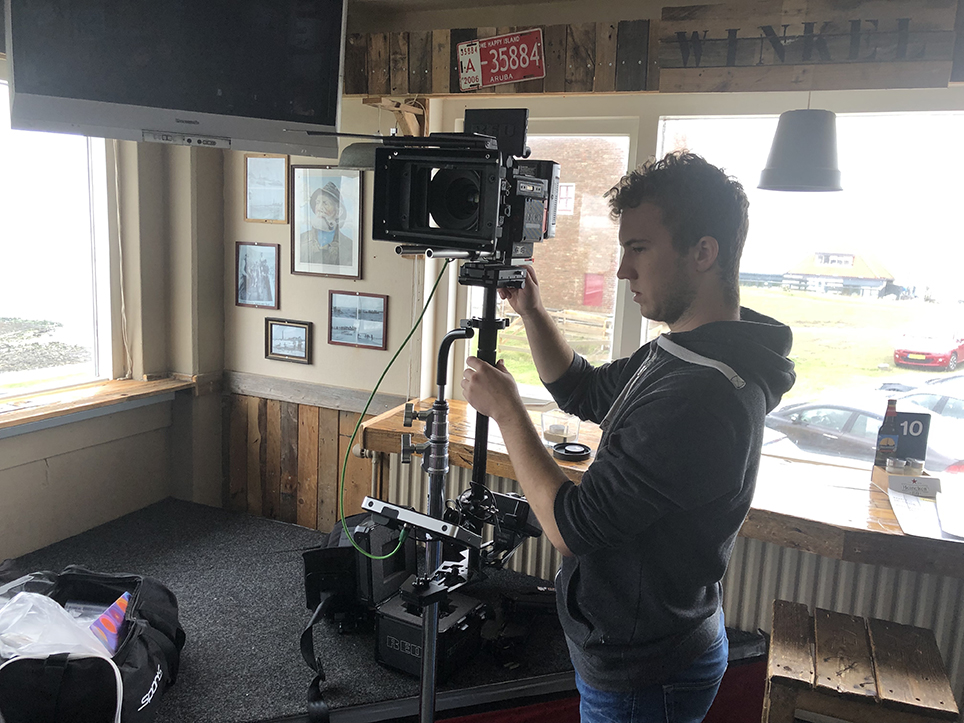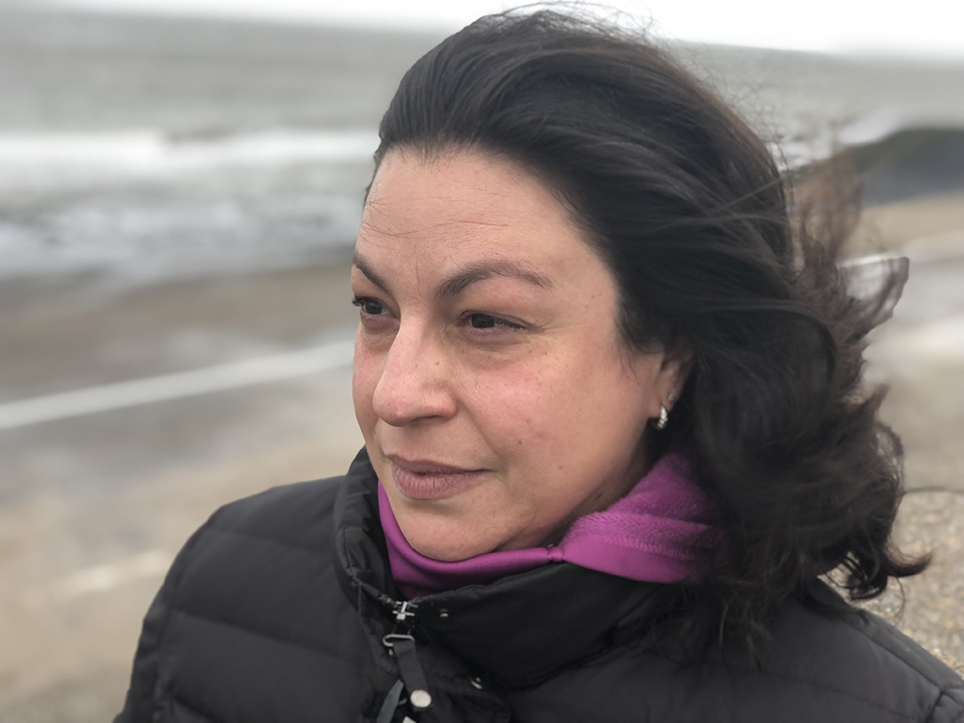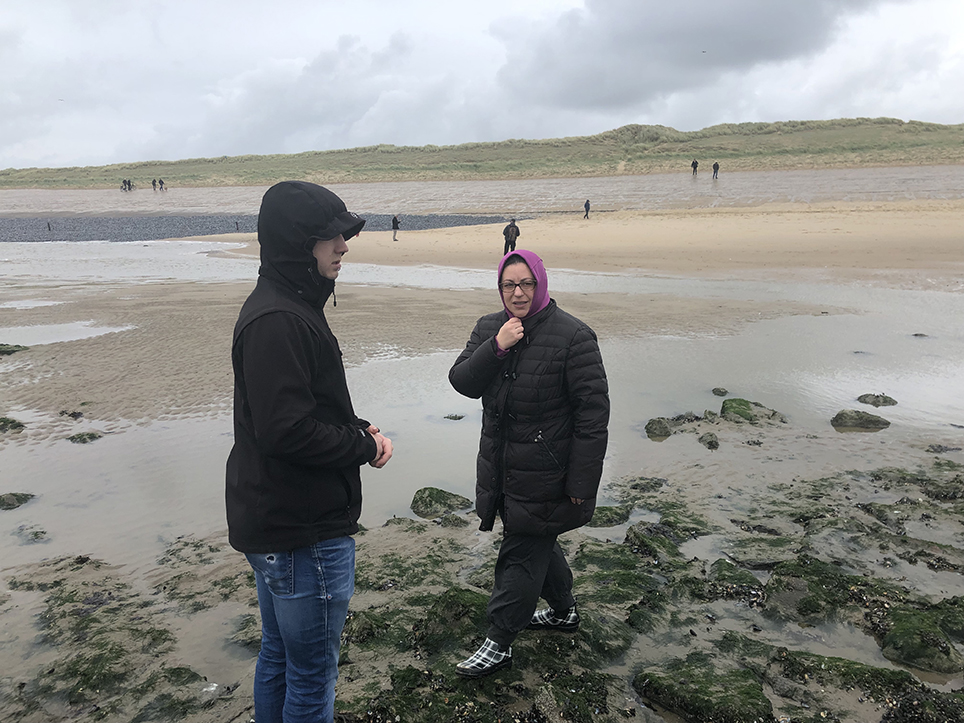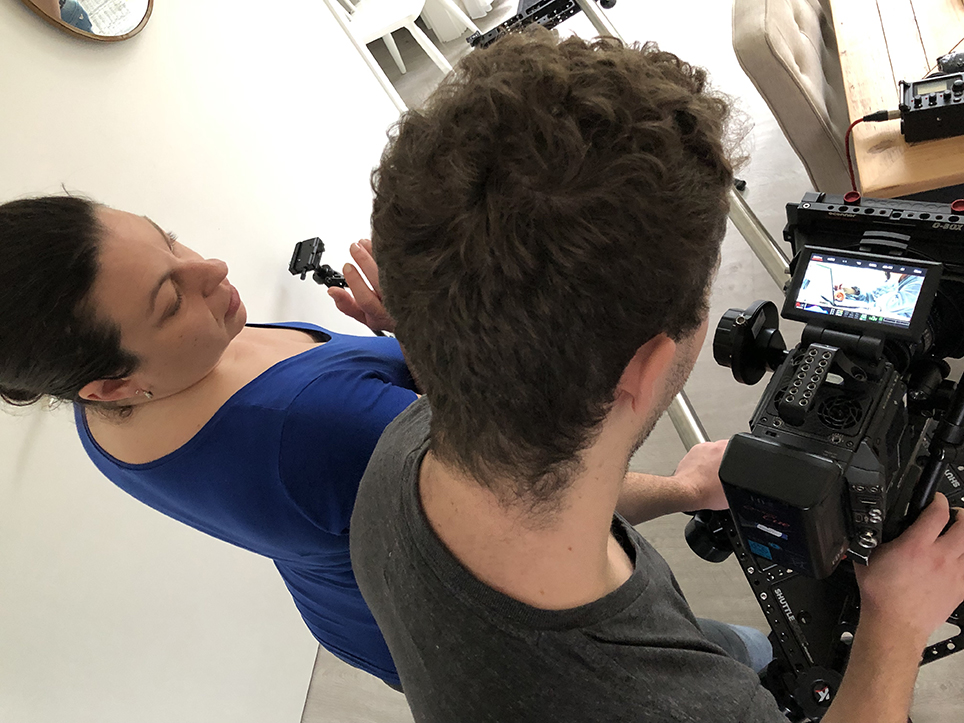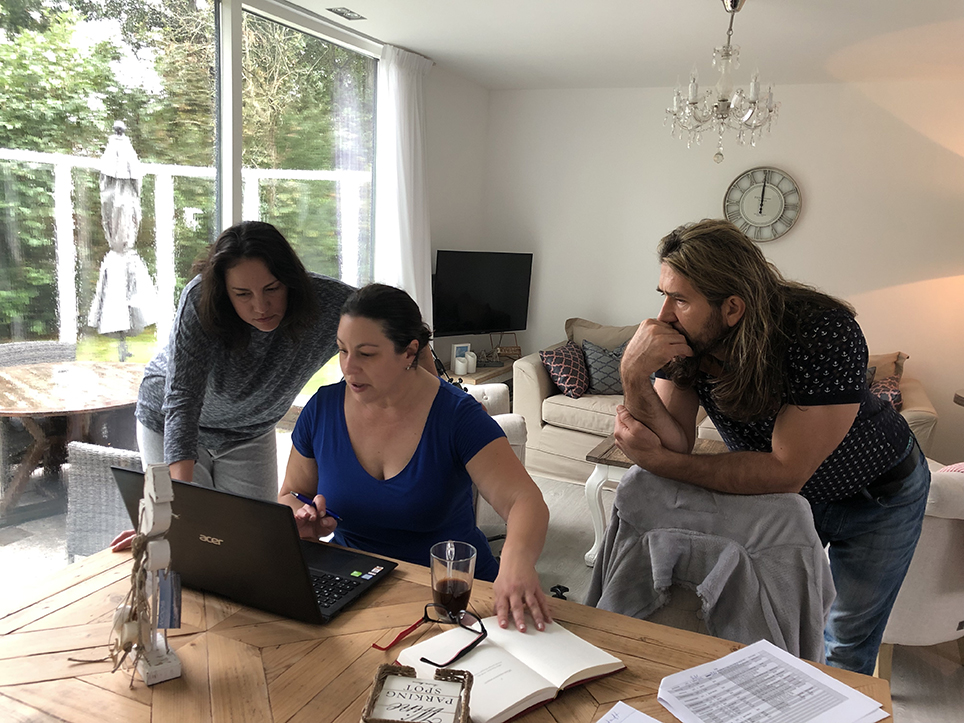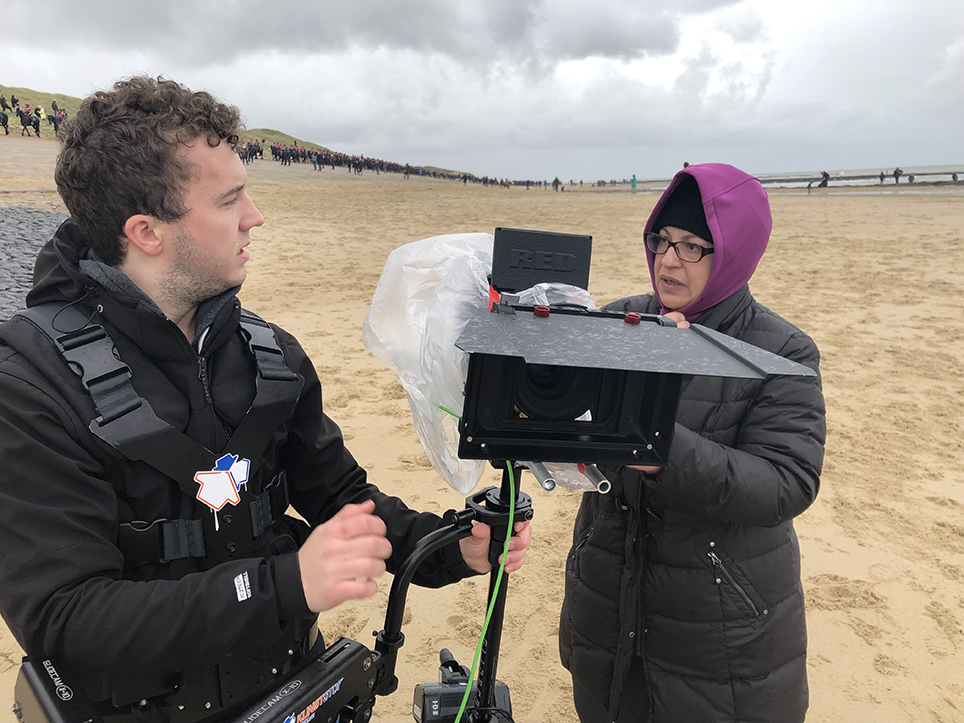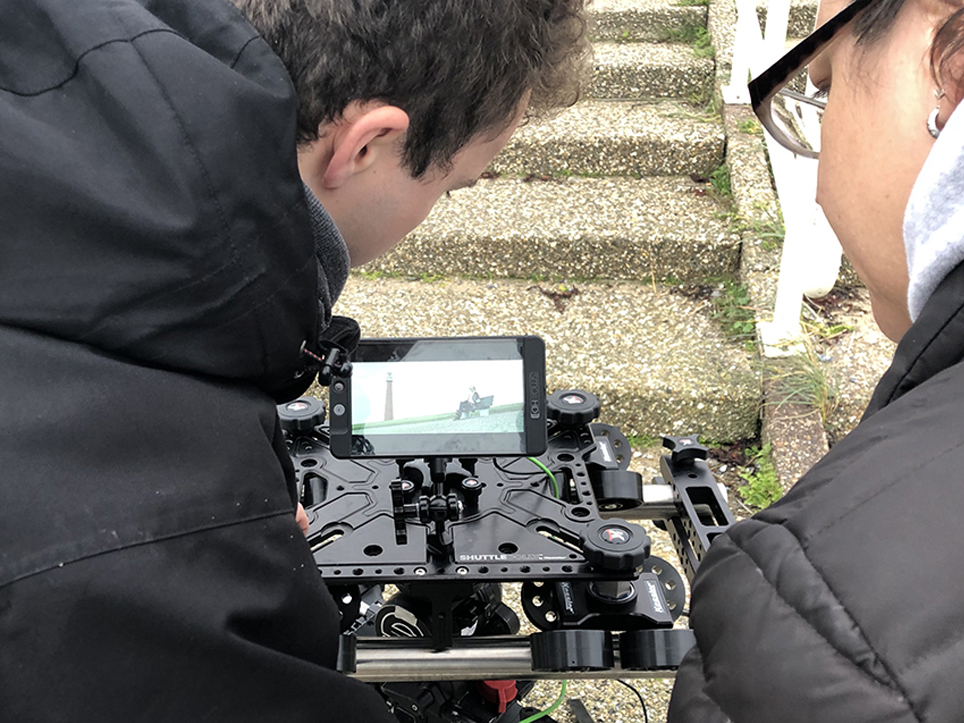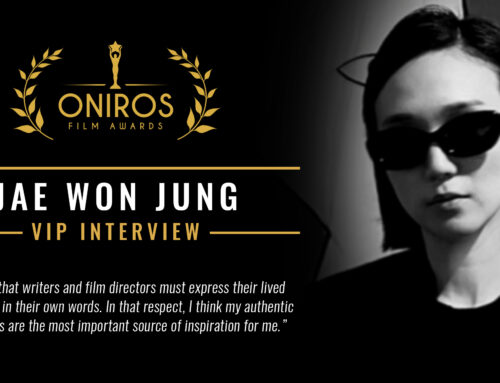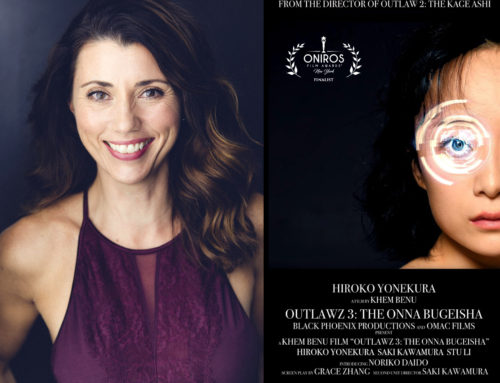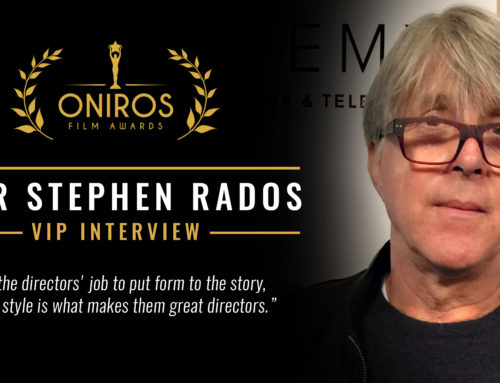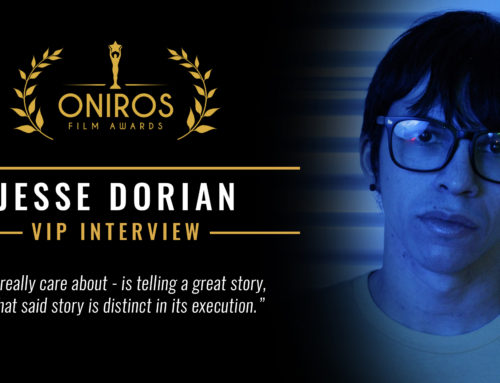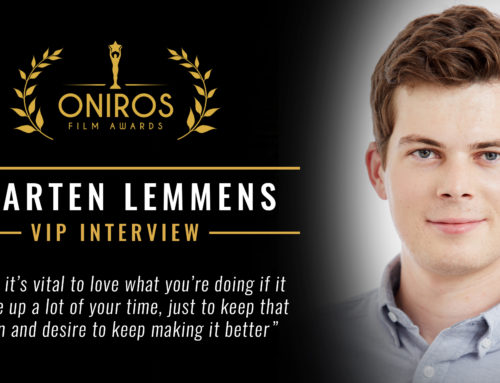BEYOND THE ONIROS FILM AWARDS®
VIP Interview with Alexandra Bekiou, writer and director of the short film ‘As the wave broke’
by OFA Team
Alexandra Bekiou is a talented writer, producer and director from Germany. We had the pleasure of interviewing her about ‘Als die Welle brach – As the wave broke’, her debut short film that was a Finalist in our Annual Award 2020. She’s been writing her own stories since she was just six, lived and worked in the music industry in Greece and then found herself on a film set years later back in Germany, where she had the chance to watch and learn, by doing. That was the moment she fell in love with the art of filmmaking.
In this interview, we’ll be talking about self-awareness, about Team work and about the desire and passion to learn and to create.
1. Hi, Alexandra! Huge congratulations on being Nominated as Finalist in the category ‘Best Director’ at the Annual Edition of the Oniros Film Awards! You wrote, produced and directed the short film ‘As the wave broke’. What should the audience expect to see?
First of all, thank you very much for making me part of your wonderful film festival, the ONIROS FILM AWARDS. It was a huge honour for me being nominated a finalist in the category “Best Director at the annual edition 2020! “Als die Welle brach… / As the wave broke…”, based on a biography of a woman, is a thought-provoking film. The audience is confronted with the emotional portrayal of the actors and associated locations that I have chosen. The sea, the violin in the sand, the memories of the main character Julia, the key role of the unknown man, the part of Ricky in Julia’s life… All of these will leave open many questions and possible answers to the background story, for the audience.
2. Where did you get the inspiration from for creating your story? What about your characters?
The film shows an exceedingly small but most important part of a biography I held for many years in my hands. Through this biography I wanted to have the content filmed in a way, that abused people can see that inner freedom, and the hope for finding the unconditional and true love is more important than to see themselves as “a victim”. My goal was to show emotions, feelings and facial expressions combined with words of wisdom, by using the story of a sexual abused woman. A woman who had been mentally as physically abused for many years, but managed to raise up from her own ashes as a phoenix, only using her strong will to LIVE and to LOVE. Locations and sceneries were carefully used and simply held. The wildness of the sea, the emotional part in the woods as well as the final end with a person which is the “key part”, are the most difficult parts for the audience to help understand the story, but I had a good reason to leave an open and questionable end. There are three characters: the main character of Julia, someone who I call Ricky (I left the thought open of who he might be) and the key character (who could be anyone or anything). I would rather not say much more about the characters because I will give the solution to this very story in the feature film I am planning to shoot.
3. When did you decide to become a filmmaker?
Well, that is a good question. I have been writing stories for about 40 years now, starting to type on the typewriter of my father, when I was 6 years old. From 26 to 35 years old, I was involved in the music business, rather than in the film industry. At 39, I moved back to Germany from Greece, and a friend of mine took me to a film set for a feature film he was acting in, just for fun. After many weeks of being on this set, I had the chance to help out as a Set Assistant, Set Runner, Assistant Director, and being often behind the monitor helped me to understand that I have a good eye on things. Then it just clicked and so I started to visit film festivals, connected with people from the film industry, started writing 3 scripts for feature films and LEARNING BY DOING, I helped out on many sets as I could. And then I woke up one day and said to me, that I wanted to become a filmmaker myself.
4. We know this was your first time directing a film. How was this experience for you? What did you enjoy the most about working the film? What did you find more challenging?
It was an incredible experience because I did the pre-production, the organization, the financing and writing by myself. I also got a lot of help from people which respected me and loved my script and the story behind it. The most I enjoyed about working the film, was just everything. The pre-production, working with my co-author (that also was one of the actors, Michael Marwitz), working on the set with my team, in front and behind the camera, the post-production: just everything. The biggest challenge about making this film was working with the actors. Just from the beginning I saw that I had to let them be free, let them use their own choice of “actions” in front of the camera. It is good to have a written script, that is for sure, but on set, you need to understand as a director, that some things or dialogues aren’t working the way you have written them. So, it was very important for me to give the actors the chance to express themselves as they thought it would be better for the film, and working with them together as a team and not make a difference between Cast and Crew, as many directors or filmmakers do.
5. What are the directors that inspire you the most?
This is extremely easy to answer. It was Quentin Tarantino who inspired me. I can tell you why. He once said: “When people ask me if I went to film school, I tell them, ‘No, I went to films’”. I too have never visited a film school, but in seven years I have learned more than I could have possibly learned in a school. I am a practical person, who watched the techniques while working on set. And I can say that I am incredibly grateful for all the help and opportunities I got from filmmakers who have been doing this job for more than 25 years.
6. Do you have any on set stories you can share?
Yes indeed, there is one story I would really love to share. I was working on a set with students. There were about 20 people on set. I had the position of “co- director and co-producer” of the short movie we were shooting then. When I have noticed that two male co-workers / male students had a problem in receiving “instructions” from a woman, as well as from a person who hasn’t visited any film school, I took them away from the set and said to them: “So, listen guys. Either you work with me together, or you are willing to leave the set. A film can be done only when each part of a chain holds on together. If you have a problem with me, that is another thing and has no place on set. So, are we working together and learning from each other or do you want to leave right now?” Well, the male students got noticeably quiet at this moment, and said that they were very sorry about making me feel bad. I gave them both a huge hug and everything was OK. The thing behind that story is that, no matter if you got a higher education or not, EVERY human being has something to give and to share. We just must be open to every idea, every word and to work TOGETHER. Selfishness, arrogance, and bad behavior should have no place, anywhere in our lives.
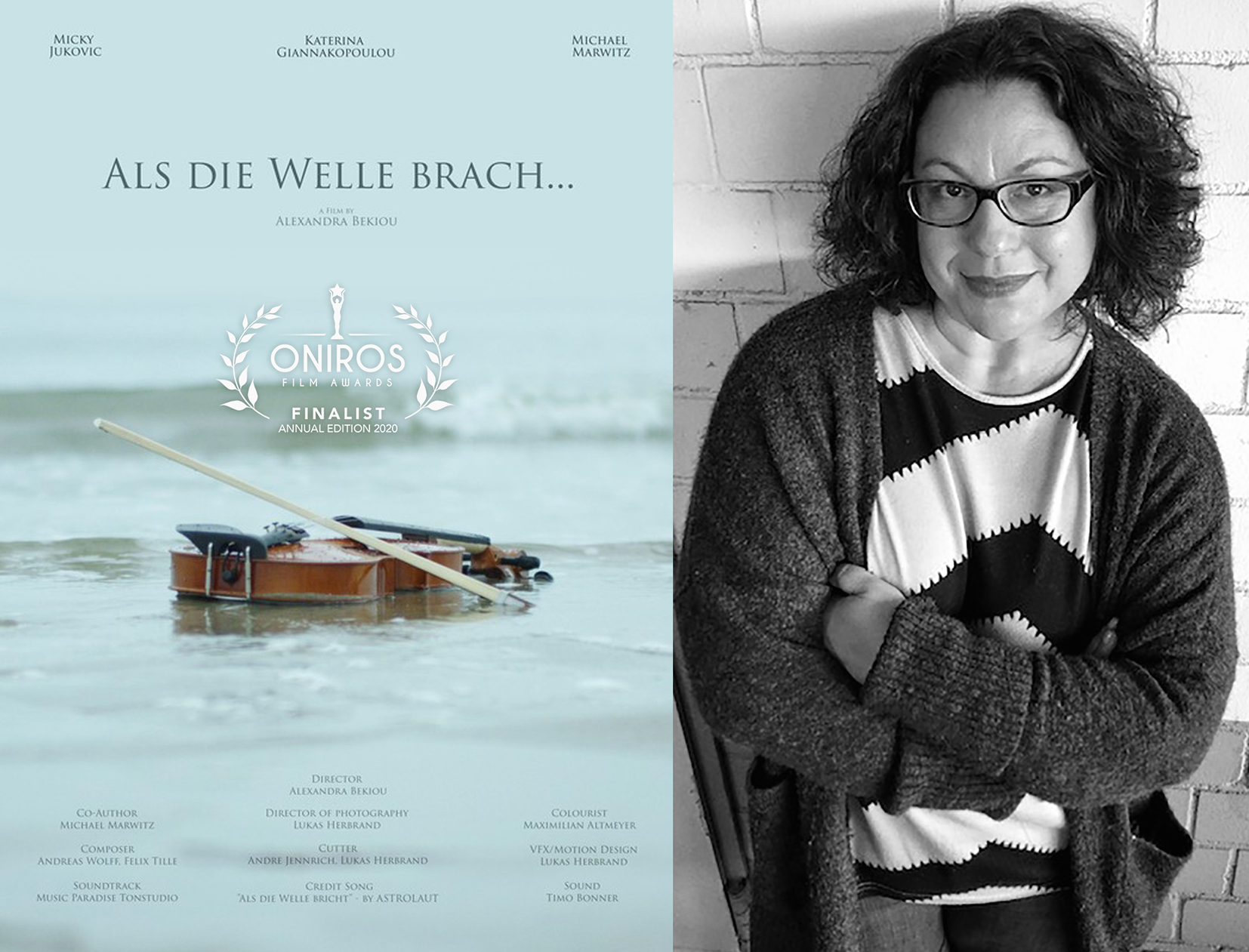
Alexandra Bekiou director of Als die Welle brach… (As the wave broke)
7. Let’s talk about the cast. How did you choose your actors? Was this your first time working with Katerina Giannakopoulou, Micky Jukovic and Michael Marwitz?
I have chosen the actors quite carefully because with each one of them I had a history. For example, Michael Marwitz is a high qualified actor in Germany and has been in this business for nearly 40 years. We have met three years ago and worked together on over 10 sets. One day, I told him about my idea and so we started working together on the making of this movie “Als die Welle brach…/As the wave broke…”. Micky Jukovic is also very well known in German TV and social medias, mostly playing roles as the “bad guy”. I met him four years ago on a film premier where he played a “character”. But I saw something sensitive in him and started to watch lots of series and movies with him over those years. With Micky, yes, this was our first time working together. Katerina Giannakopoulou is a dancer and an artist I met while visiting a school for acting years ago. As I met her, I saw a potential in her because she was still not well-known as an actress. I wanted to give her the chance that people could see that she also has a talent in acting. I think that playing the part of the main character in my movie was a great chance for her.
8. Without giving anything away, what connects the characters of your film Julia, Ricky and the Unknown Man to each other?
I would like to mention a metaphor called “the red circle”. It is when people meet in one point of their lives without knowing that they have met before (it may be in a previous life) and that they will meet again at some point in life. I think this is the best explanation of the connection from the characters of Julia, Ricky, and the unknown man.
9. At the beginning of the film, we can see a violin lying on the sand, washed by the gentle touch of the waves. What is the real meaning of the violin? Why did you choose this specific musical instrument to tell your story? And what is the real meaning of the waves?
The violin is the instrument the main character has been playing for about 12 years. She played also in real life in an orchestra and her dream was to play it professionally someday. The violin has been her sanctuary since she played it for the very first time in her life. The real meaning of the waves is…well, I can tell you this for now: the main character was a competitive swimmer, long time ago. The water was her element. The waves can be calming and wild, like her own life has been. Water can destroy, but it can heal too.
10. In your film, you mention Homer’s Odyssey. Do you feel any particular connection to it? What does The Odyssey mean to you?
The Iliad of Homer is an ancient epic book I have got from my father. I am owning it in the ancient Greek language. The story of the Odyssey had a great impact in my own life as in the life of the main character, the woman I got the biography from. Odysseus travelled for more than 10 years through the roughest seas and was desperately searching for the correct direction to go “home” again. Life itself is the same. We struggle every day too. We have ups and downs, we are sometimes happy, then sad, and my main character is searching for her own place in life and for unconditional Love. The Odyssey, the travel, the struggle, we all have them in us. My father was an enormously proud man and a proud Greek. He was a brilliant and so loving father with a wisdom I have never met again in my life. I used many words of him in the film too, because I have dedicated the movie also to my father. He made me proud being his daughter, and I am proud to own this ancient book in my hands, The Iliad of Homer.
11. What is the message that your film and your characters convey?
The message behind of this movie is simple. Never pity yourself, no matter what has happened to you. There is a life beyond abuses and no matter how bad or often someone has been abused, no one shall take control over your life, except yourself. Abused people are not victims, abused people shall come out stronger after being abused and they must not see themselves as victims. Life is worth fighting for, the mind must be free from every negative impact, and to stay positive is the most important thing. Humans are stronger than they think they are.
12. What’s next for you? What are you working on at the moment?
At this moment I am writing the script for my feature film that will combine two or three scenes from “Als die Welle brach…/ As the wave broke…” as memory fragments. In between, when I have time, I still work and help friends / filmmakers of mine, which are working on their own movies, as an assistant director or co-director.
